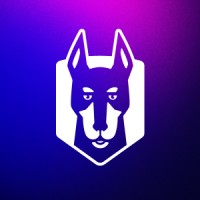
Snyk brings security into the developer workflow so vulnerabilities are found and fixed early. Scan open source, containers, IaC, and code in IDEs and CI. Automated PRs suggest upgrades and patches. Policy and reporting align risk with product priorities. With integrations across repos and pipelines, teams ship faster while reducing exposure, rework, and noisy vulnerability backlogs.
Catch issues where developers work. Extensions surface vulnerable packages, misconfigurations, and code risks with fix advice during commit. CI gates enforce policy on pull requests without blocking productive work. Because detection lives alongside coding and builds, teams prevent regressions and reduce late surprises, which keeps releases moving and avoids after-hours scrambles to address missed findings.
Audit dependencies for known CVEs and license obligations. Snyk recommends minimal, safe upgrades and backported patches when major jumps break compatibility. Policies flag risky licenses early so legal sign-off is clear. With transitive dependency insight, teams understand blast radius and prioritize what actually matters instead of chasing long lists that dilute attention during critical delivery windows.
Scan base images, Dockerfiles, and Kubernetes manifests for vulnerabilities and hardening gaps. Base image recommendations shrink attack surface. IaC checks validate encryption, network, and identity defaults before provisioning. By shifting these reviews left, platform and app teams agree on guardrails, prevent config drift, and keep environments compliant without slowing velocity or duplicating audits across groups.
Combine SAST with reachability signals to focus on exploitable issues in running services. Call graphs and entrypoint analysis de-prioritize dead paths. Ownership maps route fixes to the right teams. This focus turns security work into visible risk reduction rather than vanity numbers. Engineers see clear next steps, and product managers can plan remediations that protect customers without derailing roadmaps.
Dashboards show trends by repo, team, and severity. Policies define SLAs, exceptions, and quality gates. Integrations connect GitHub, GitLab, Bitbucket, Jira, and ticketing so work lands where it will be done. Evidence for audits is exportable. With a shared view of risk and ownership, leadership tracks progress, security guides the roadmap, and engineering teams act confidently on the highest-impact fixes.


Best for engineering and security teams aiming to shift left without adding friction. With IDE and CI scanning, dependency and container checks, reachability-based prioritization, and clear policies, Snyk turns sprawling findings into actionable work. Leaders see measurable risk reduction and fewer fire drills, while developers keep shipping features with trustworthy defaults across services and platforms.
Snyk replaces late-stage scans, endless ticket queues, and unclear ownership with developer-first security. Issues appear with fix guidance during coding and builds, policies define SLAs, and integrations push work into backlogs. Because prioritization emphasizes exploitability, teams invest effort where it matters. The result is faster delivery, reduced exposure, and security that scales with your product.
Visit their website to learn more about our product.


Grammarly is an AI-powered writing assistant that helps improve grammar, spelling, punctuation, and style in text.

Notion is an all-in-one workspace and AI-powered note-taking app that helps users create, manage, and collaborate on various types of content.
0 Opinions & Reviews